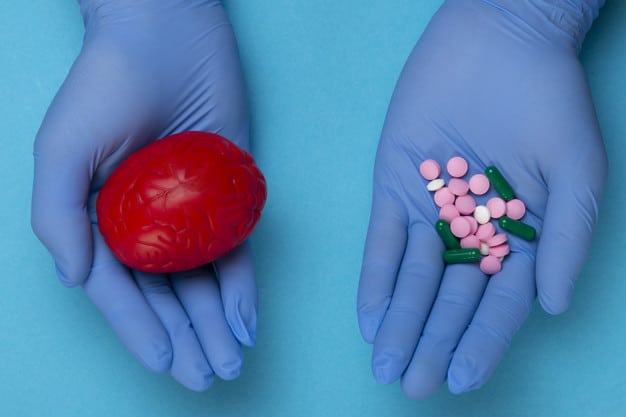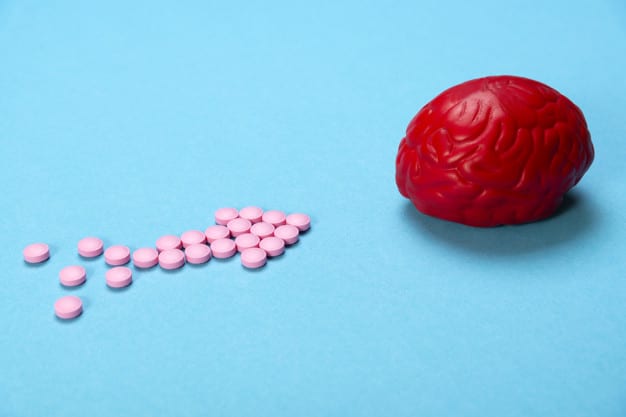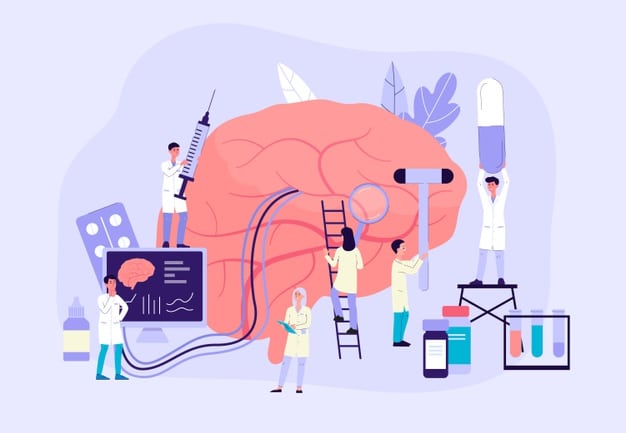Pramiracetam belongs to the popular family of nootropics called “racetams.” This is the same family that Piracetam, a well-known nootropic, belongs to. Actually, Primaracetam was synthesized from Piracetam.
Pramiracetam was developed back in 1979 by a division of Warner-Lambert Pharmaceutical Company called Parke-Davis. It is sold under the brand name Pramistar. In 2000, Warner-Lambert and Pfizer merged their operations, so the drug is now under Pfizer.

It has been subjected to various studies, most of which are done on animals. From the early studies, the researchers observed its powerful cognitive-enhancing effects. The data even showed it to be more potent than the original racetam drug Piracetam. Sadly, these studies were limited to animal subjects, and they are also not of the highest quality, so they're not very reliable.
That said, there are still many trials and some anecdotal evidence showing how useful Pramiracetam can be. It can boost cognitive functions like memory formation and retrieval in healthy adults. It may also be effective in treating Alzheimer's symptoms, such as memory loss and difficulty in learning. Some reports also suggest it can treat central nervous system disorders and symptoms of brain injury.
The FDA has not approved the use of Pramiracetam in the medical field. However, the drug is available as a dietary supplement. Pramiracetam is also not approved in Canada, but people can import it for personal use. It's only in Europe where Pramiracetam has been approved as a prescription drug to treat Alzheimer's and neurological issues like memory problems, ADHD, and dyslexia.
Other than Pramistar, Pramiracetam is also sold under the brand names Remen and Neupramir.
Mechanism of Action
Pramiracetam has a unique mechanism of action. It's even different from other nootropics. Instead of increasing neurotransmitter secretion directly – as is the case with some racetams – it stimulates the high-affinity choline uptake, a precursor to acetylcholine. Acetylcholine plays a pivotal role in cognitive functions like memory formation, concentration, and learning ability. Therefore, an increase in acetylcholine should boost cognition.
Scientists have also suggested other possible effects that it may have on the brain. For instance, this study reports how the nootropic increases the activities of nitric oxide synthase, which boosts NO levels in the brain. An increase in NO boosts cerebral blood flow, which is critical for maintaining brain cells and neurons.
Uses and Benefits
Pramiracetam may be beneficial in the following ways:
- Memory Enhancement
Pramiracetam is reported to be a great memory enhancer in various animal studies and a few clinical trials. In this animal study, Pramiracetam was used in dosages of 7.5 mg per kg and 15mg per kg in rats for around 7 weeks. The researchers investigated the drug's effects on the rat's short-term (working) and long-term (reference) memory. At the end of the study, they observed a significant boost in long-term memory. Although there was no significant difference in working memory, the results showed the promising effects of the nootropic in both spatial learning and memory.
The effects of the nootropic in humans have also been investigated. For instance, this double-blind placebo-controlled trial looked at the impact of Pramiracetam sulphate on four young men with memory and cognitive issues caused by brain injuries. They were given a dosage of 400mg TID for 18 months. A significant improvement in memory was observed during the trial and up to a month after the treatment was discontinued.
By no means are these trials enough, but they paint a really good picture of just how useful Pramiracetam could be. User experiences also suggest that it can work even in healthy people.
- Supporting Brain Injury Recovery
The nootropic can be very helpful for people with mild and severe brain injuries. It’s even reported to be more effective than Piracetam at reducing dizziness, nausea, headaches, and other symptoms of brain concussion.
It can also reverse the symptoms of Chronic cerebrovascular insufficiency since it boosts blood flow in the brain. Individuals at a predisposed risk of developing the condition may also use the nootropic as a prevention measure.
- Boosting Neuroprotection
Pramiracetam can offer neuroprotection in both healthy and unhealthy individuals. This has been observed in animal and human trials.
The drug can protect the brain against toxins and other drugs. For example, Pramiracetam reduced amnesic effects stimulated by the drug Scopolamine in healthy individuals.
Animal trials also showed Pramiracetam could protect the brain against memory loss induced by electric shocks.
Side Effects
Most of the studies involving the nootropic did not report any severe side effects. In a few rare cases, the users experienced dizziness, nausea, headaches, sleep disturbance, GI distress, and nervousness.
Taking the drug in high doses and for prolonged periods can increase your tolerance.
You can reduce the risk of adverse reactions by using low dosages. Some people also combine Pramiracetam with some choline nootropics to reduce side effects and boost the results at the same time.
Do not take Pramiracetam without a doctor’s approval if you’re already taking medications for a different condition.
Dosage
Based on the available trials, Pramiracetam can be used in 1200mg dosages.
Pramiracetam's half-life is between 4 and 7 hours, so it's best to split the dosage into two or three servings of 600mg or 400mg, respectively.
Final Thoughts
The nootropic is a drug with so much potential. It can be highly beneficial to healthy people as well as individuals with Alzheimer's, dementia, brain injuries, chronic cerebrovascular insufficiency, etc. However, clinical data on the drug is very limited, and that's why we encourage you to use it very carefully and under the guidance of a licensed medical practitioner.
References
- https://psychonautwiki.org/wiki/Pramiracetam
- https://examine.com/supplements/pramiracetam/
- https://www.researchgate.net/publication/322179918_The_effect_of_pramiracetam_in_the_myelination_of_the_hippocampus_in_the_BALBc_mouse_Mus_musculus











